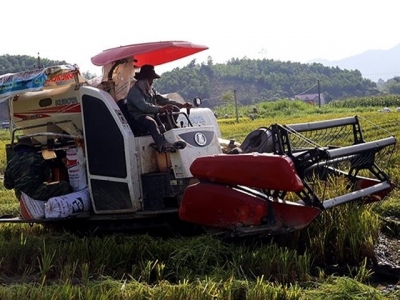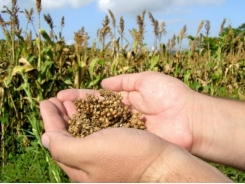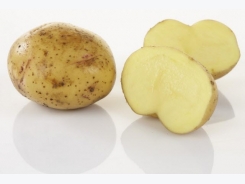2017 - An impressive year for agriculture sector

Hoang Trong Thuy, an expert from the Viet Nam Agriculture Technique Science Association, talks to Viet Nam News about achievements of the agriculture sector in 2017.
How would you assess the agriculture sector’s performance this year7?
Despite many difficulties in 2017, like natural disasters and limited output markets, the agriculture sector has recorded impressive achievements with an expected growth of three per cent and the export turnover of agriculture, forestry, fisheries products reaching US$32 billion. The best part is that export of fruits and vegetables is expected to grow by 43 per cent over last year. The next best part is fisheries export, which could reach $8 billion by the end of the year.
Meanwhile, quality has been given top priority for domestic consumption. We can say that 2017 is the year when a balance was achieved between agriculture export and production for local demand.
What made these achievements possible?
From early this year, Prime Minister Nguyen Xuan Phuc has directly attended major events and seminars of the agriculture sector and presented breakthrough instructions for promoting its development, especially in applying advanced technologies in agriculture production. These include the establishment of an organic farming model, ensuring food hygiene and addressing many institutional difficulties.
The agriculture ministry has worked closely with relevant ministries and agencies in adopting an aggressive approach to overcoming challenges, including coping with difficulties caused by natural disasters.
Farmers’ creativity and enterprises adapting quickly to new production models have also played an important role.
On restructuring the agriculture sector, we have focused on two main areas: the first is raising the quality of the country’s agriculture products and the second is boosting organic farming.
In the Mekong Delta area, farmers and co-operatives have focused on joining the production chain, which is a welcome change in mindset.
Access to credit was eased for farmers, and “license tax” (excise tax) was reduced for individuals, groups of individuals and households with incomes of less than VND100 million ($4,400) a year.
Interest on loans for farmers was also reduced and credit limits increased. Some major markets were maintained, making export contracts more stable. For instance, Vietnam’s vegetable and fruits export to China increased 17.9 per cent, and to the United States by 5.2 per cent.
Another import factor in the sector’s success was increased competitiveness of local products. Co-operatives have been asked to properly manage inputs and maintain links with consumers
How you see the sector doing in 2018?
The agriculture sector will have to face several challenges in 2018. Climate change will still be a problem. World markets are going to be unpredictable. Market forecast, production planning and macro planning have always been a challenge for Vietnam.
Secondly, public debt is still high. Bad debts in trade, industry, service and agriculture have not been properly tackled, which will make it difficult to reducing interest on loans.
Shortage of material for fisheries sector is still a worry, and the planning and development of agriculture products processing has not been done properly.
What are the solutions for the agriculture sector to develop sustainably and for farmers to have stable incomes?
The agriculture ministry has drafted a plan and has assigned specific tasks to related agencies. The plan includes aggressive removal of hindrances in consumption of agriculture products, fostering hi-tech applications for production and boosting disbursement of basic construction investment capital.
It has also stressed the importance of improving natural disaster forecasting in order to limit damage.
The ministry especially wants to promote output markets and removing barriers to consumption. Market analysis and forecasting will be paid more attention. It will aim at providing enterprises with proper, timely warnings about non-tariff barriers, technical barriers and potential problems with export products. Trade promotion in foreign markets will be strengthened. Negotiations to remove trade barriers will also be on the to-do list.
Agriculture restructuring in 2018 must focus on climate change adaptation.
Export expansion efforts should involve careful research on markets like China, the US, EU and Japan.
Có thể bạn quan tâm
Phần mềm

Phối trộn thức ăn chăn nuôi

Pha dung dịch thủy canh

Định mức cho tôm ăn

Phối trộn phân bón NPK

Xác định tỷ lệ tôm sống

Chuyển đổi đơn vị phân bón

Xác định công suất sục khí

Chuyển đổi đơn vị tôm

Tính diện tích nhà kính

Tính thể tích ao hồ




 Organic agriculture should not develop massively by trend…
Organic agriculture should not develop massively by trend…  Export goods spotlights 2017
Export goods spotlights 2017